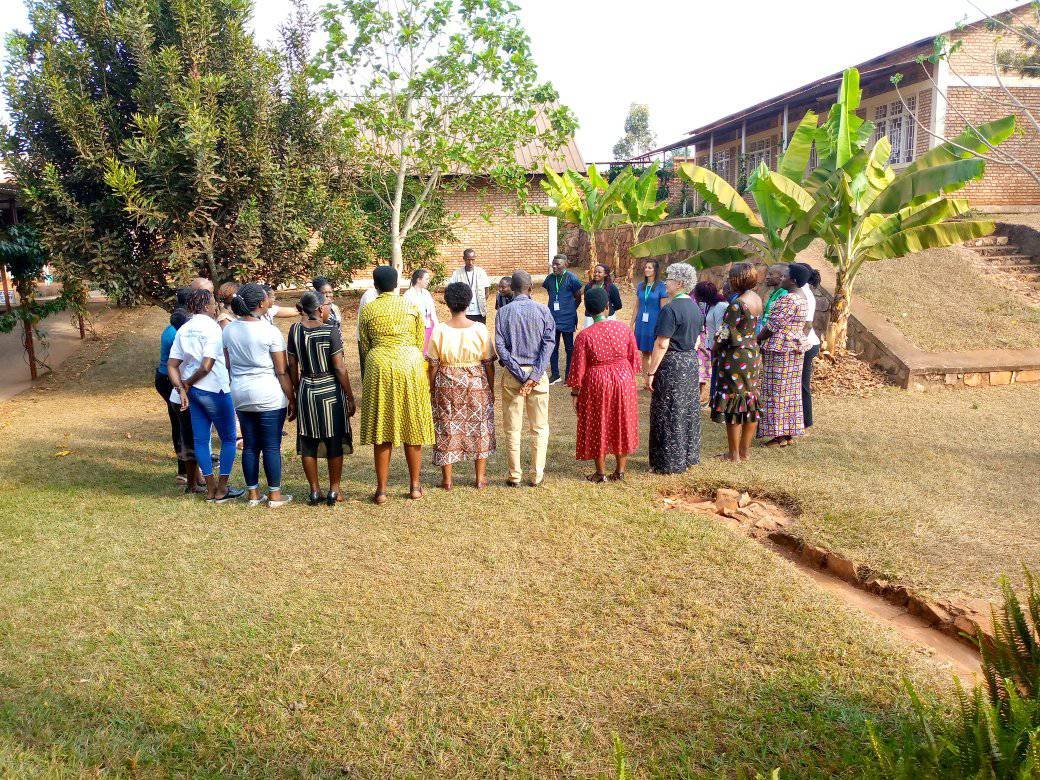About Dr. David Niyonzima:
A Catalyst for Change
Conflict in Burundi
You may or may not know that Burundi, a small country in Central Africa neighboring the more well-known Rwanda, has faced many of the same political challenges. In the early 1990s, both nations experienced the interethnic violence, primarily between Hutus and Tutsis.
After the interethnic violence in 1993, Dr. Niyonzima realized that the peace-making efforts rooted in Quakerism felt ineffective. He experienced a sense of helplessness in supporting trauma victims, many of whom, like himself, had survived mass killings and witnessed the loss of family and neighbors. He recognized that the unresolved psychological and psychosocial wounds from earlier violence in 1965, 1972, and 1988 were fundamental causes of ongoing conflict, perpetuating a cycle of violence.
Creating THARS
Dr. David Niyonzima, who survived the mass killings of October 25, 1993, narrowly escaped with his family to Kenya, where he lived as a refugee for several years. Dr. Niyonzima’s time as a refugee allowed me to reflect on why his life was spared and what purpose he could fulfill as a result. He felt a divine calling, realizing he was kept alive to make a difference. It was during this time that he began to discern solutions to the cycle of violence, ultimately founding Trauma Healing and Reconciliation Services (THARS) in 2000.
Breaking the Cycle of Violence
It became clear to him that his path lay in counseling, leading him to enroll in George Fox University’s Master’s in Counseling program in 2000, where he met Sandra Lucas (Executive Director of Life Counseling). He earned a Master’s in Counseling in 2002 and a doctorate in Leadership and Global Perspectives in 2013. Dedicated to peace and reconciliation, he graduated with a strong belief that healing trauma and addressing the past are essential to breaking the cycle of violence. Below is a list showcasing the remarkable contributions and pioneering work of Dr. Niyonzima in healing collective trauma and peace and reconciliation in Burundi.
Accomplishments
Doctorate in Leadership and Global Perspectives
Earned from George Fox University, Oregon, USA in 2013.President of the International Leadership University (2016 - Present)
Leading a higher learning institution dedicated to developing leaders of integrity for holistic societal transformation. He also serves as president of the National Platform of Practitioners on Mental Health in Burundi.Rank of Professor of Leadership
Awarded by the Academic Promotion Committee of the International Leadership University - Burundi on December 23, 2022, in recognition of ongoing research and publications.National Transformational Leadership Award
Received from the International Leadership Foundation in 2022 for exemplary transformational leadership.Teaching Experience
Has taught at Hope Africa UniversityAuthor
Published Unlocking Horns: Forgiveness and Reconciliation in Burundi (Barclay Press, 2001), addressing themes of violence and reconciliation.Contributions to Academic Literature
Chapter on "Quaker Decision-Making Process: The Case of Burundi Yearly Meeting," in The Quaker World, edited by C. Wess Daniels and Rhiannon Grant (Routledge Publishers, UK, 2022).
"Breaking Cycles of Trauma and Violence: Psychosocial Approaches to Healing and Reconciliation in Burundi," in Breaking Intergenerational Cycles of Repetition: A Global Dialogue on Historical Trauma and Memory, edited by Pumla Gobodo-Madikizela (Barbara Budrich Publishers, South Africa, 2016).
Facilitator
Conducted psychological support programs for staff at the Truth and Reconciliation Commission in Burundi and World Vision International-Burundi, focusing on stress management and wellness.
Publications about Dr. Niyonzima and his work with THARS:
Change can start with you.
Join us to discover more






